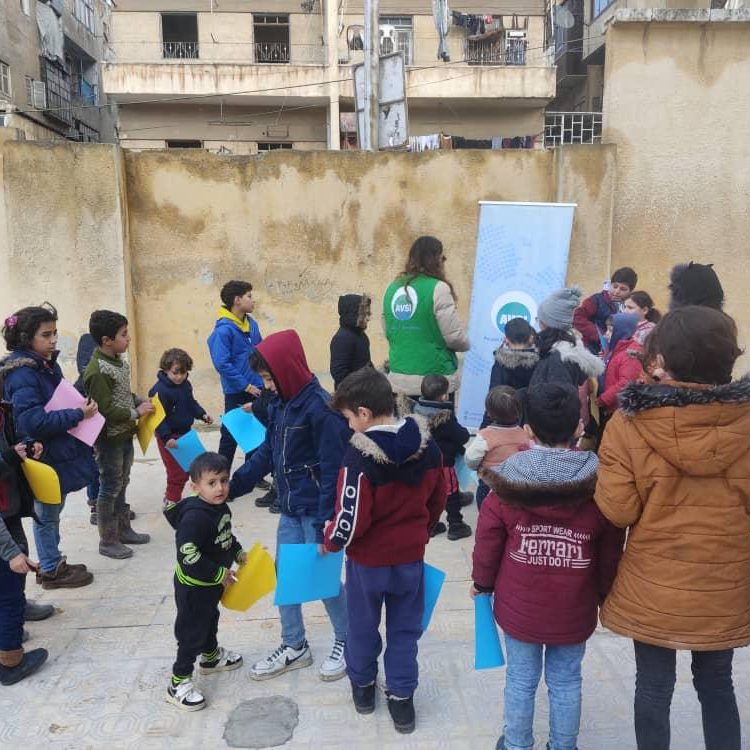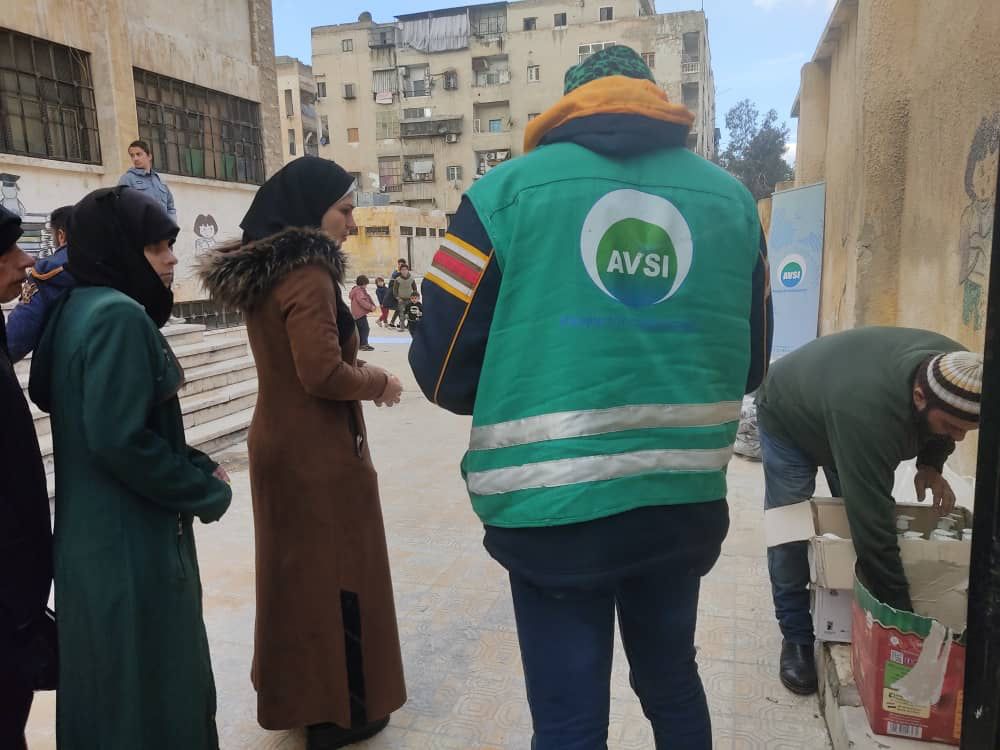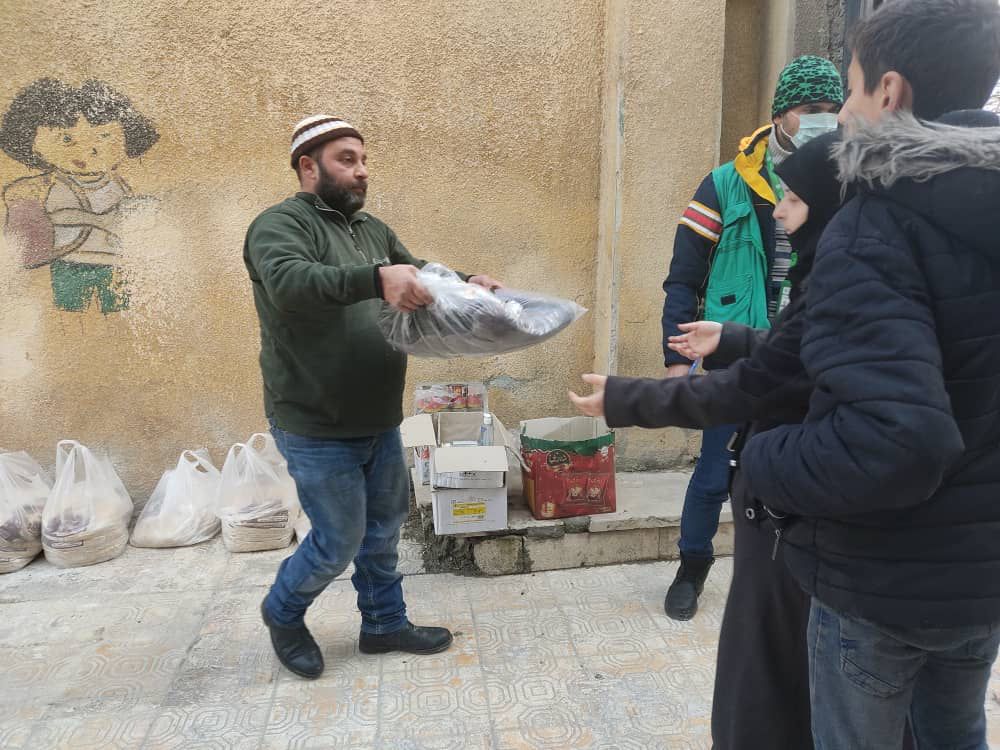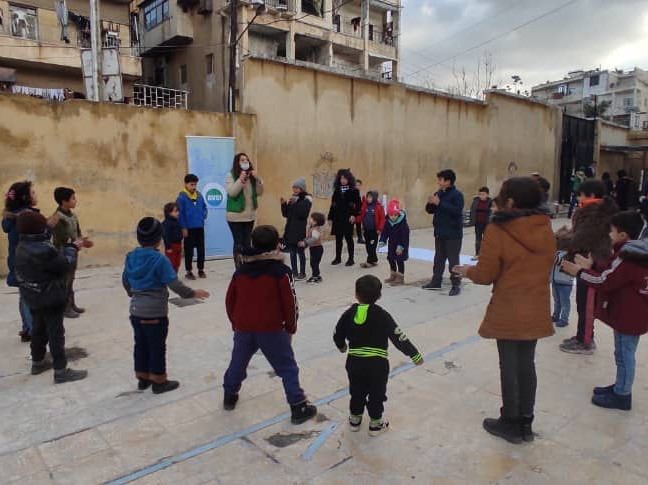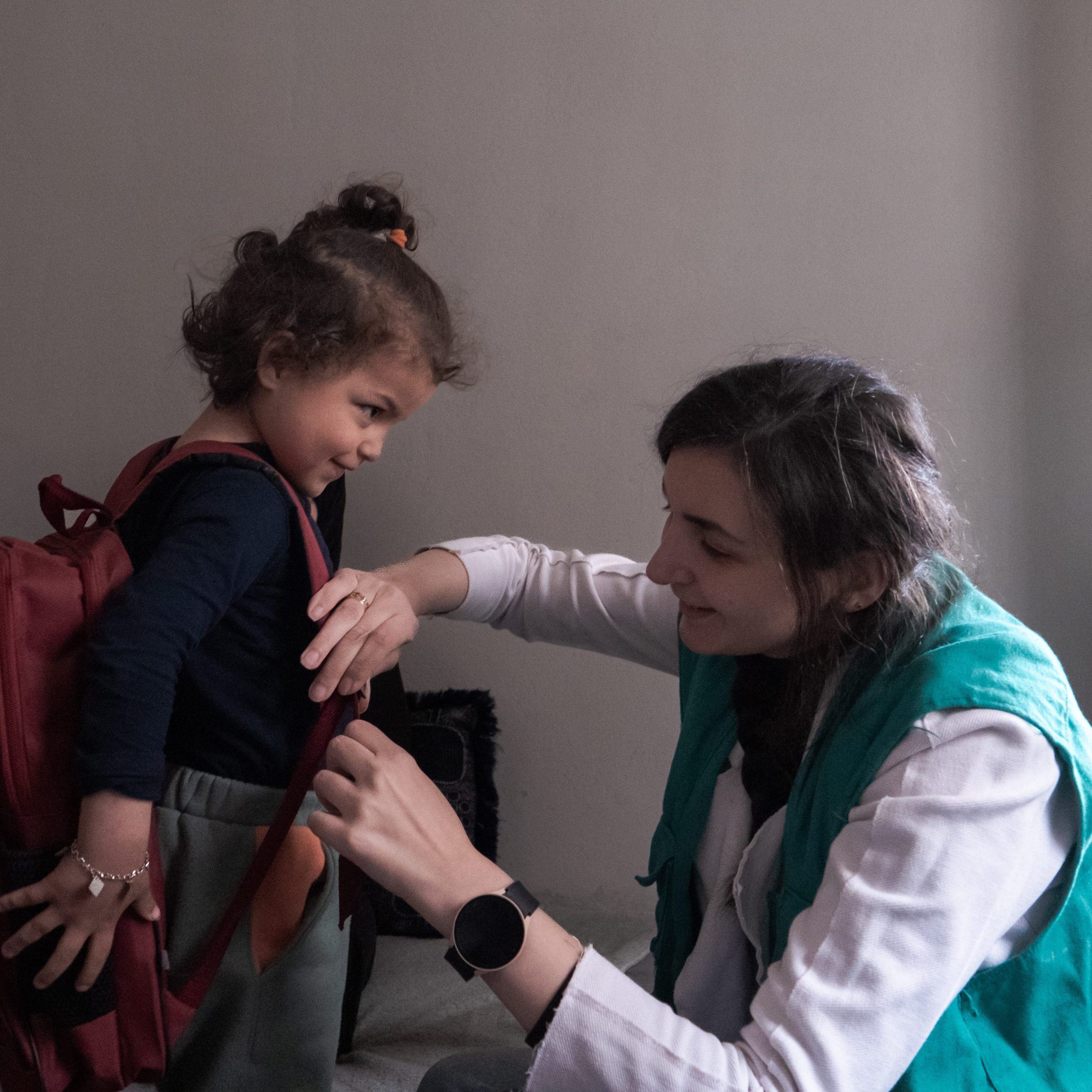On the night between February 5 and 6, a devastatingly strong earthquake struck Turkey and Syria (magnitude 7.8), with its epicenter being located near Gaziantep, a city in South-Eastern Turkey. Just 100 km away lies Aleppo, where AVSI has been working for years and immediately took action to support the population.
On February 6 we launched an appeal: in 48 hours we raised 183,807 euros and we are starting to send funds to Syria.
Meanwhile, AVSI's team treated about 80 wounded people in Aleppo's Saint Louis Hospital and put in place the first distributions of essential items: on Tuesday, February 6, 55 families received blankets, food and money.
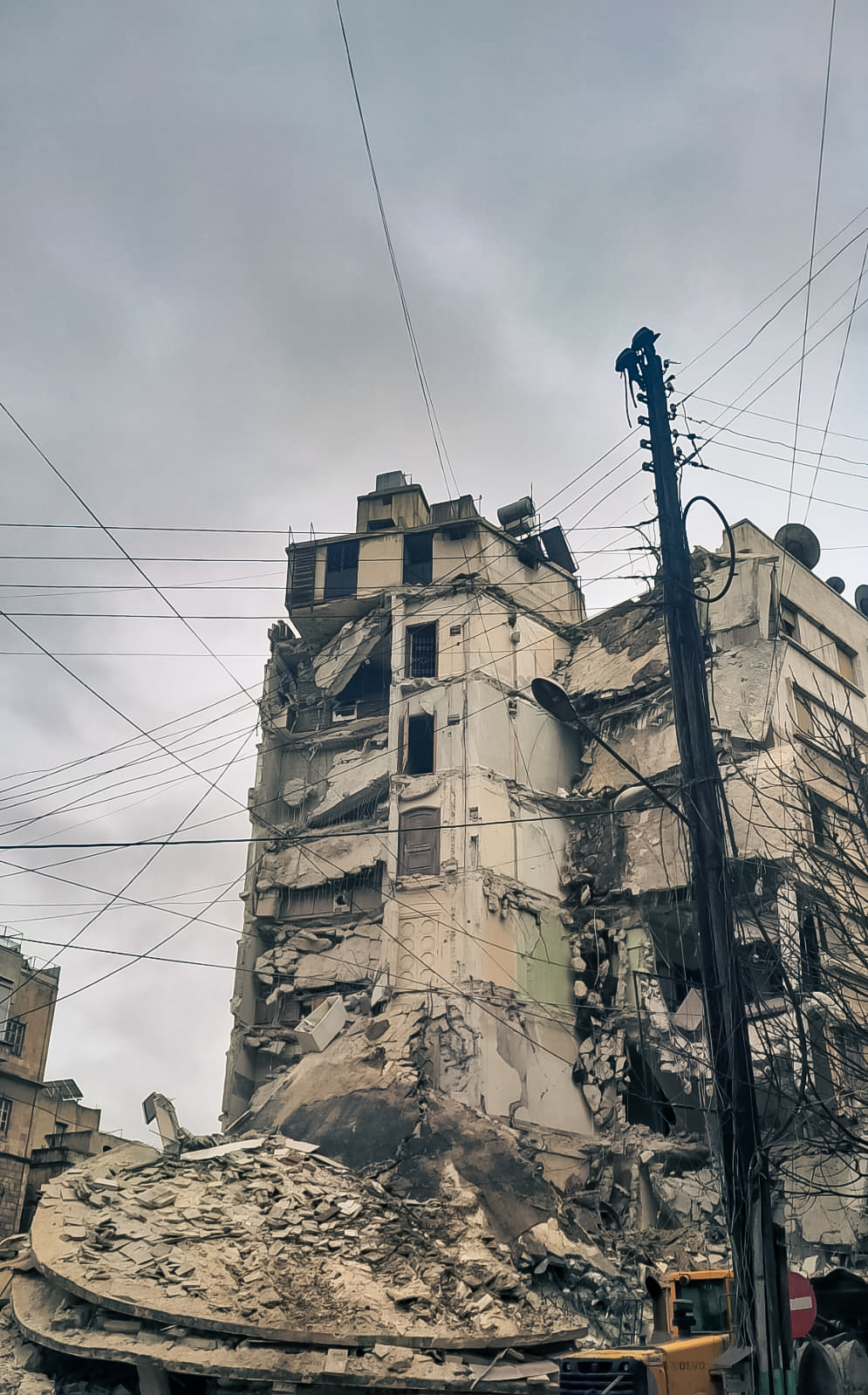
In Aleppo, people are exhausted
"People are disoriented - Filippo Agostino, AVSI country representative in Syria, told the Italian newspaper Repubblica. He arrived in Aleppo just a few hours after the quake happened - they cannot believe another curse has fallen upon this city, which has already been ravaged and wrecked by the war. Whole neighborhoods have been destroyed again, just like when bombs used to fall relentlessy and people had to run, or hide away in basements. Dozens of buildings have been razed to the ground, some of them had been newly rebuilt. Many streets are blocked, filled with debris and huge concrete blocks falled down from collapsed buildings."
Aleppo's population is facing yet another challenge after 12 years of war, the COVID epidemic, economic sanctions, an unprecedented drought and a cholera epidemic.
"L'epidemia di colera in Siria si sta diffondendo molto velocemente - prosegue Filippo Agostino "The cholera epidemic in Syria is spreading very fast," continues Filippo Agostino, "The first cases were recorded in September 2022. During the winter, due to the cold temperatures along with the wear and tear of water infrastructure, the situation gets worse and cholera spreads faster. When it's cold, people have a harder time accessing medical centers, which are few and hard to reach. This increases the risk they will not receive the right treatment in time. In Syria, 12 years of war, damaged infrastructures, along with the consequences of climate change, particularly the drought in recent months, have created conditions that are nothing short of dire, allowing the cholera epidemic to quickly spread throughout the country. The areas at greatest risk for cholera outbreaks are the governorates in the north, bordering Turkey. But, to date, cholera cases have been reported in all 14 Syrian governorates. The latest figures, updated in early December, reported 46,409 suspected cases, including 97 deaths attributed to cholera, with a death rate of 0.2 percent."
AVSI in Syria: the health crisis and the Open Hospitals campaign
In 2017, AVSI launched the Open Hospitals campaign, promoted by the Apostolic Nunciature in Damascus together with Cor Unum and the Gemelli Foundation, to ensure free care for poor patients in three Syrian nonprofit hospitals and 4 dispensaries. Such an intervention was necessary to face an unparalleled health crisis: nearly 11.5 million people, 40% of whom are children, do not receive adequate medical care; more than 2 million people in the Aleppo district and more than 1 million in Damascus don't have access to hospitals. The national health care system cannot cope with the demand for treatment, and families are unable to pay health care fees.
The Saint Louis Hospital in Aleppo, which luckily is still fully functional after the earthquake, is precisely one of these hospitals supported by AVSI through the project "Syria. Open Hospitals." To date, more than 95,000 free treatments have been provided to poor Syrians. These days, more than 80 people injured during the earthquake have been able to receive treatment here.
In Syria, AVSI also works in the fields of education and economic strengthening, with a special focus on women.
